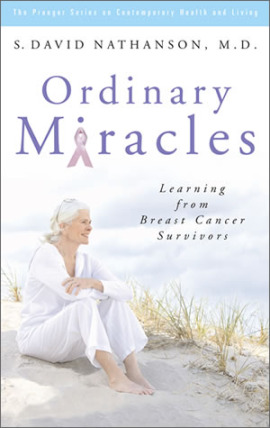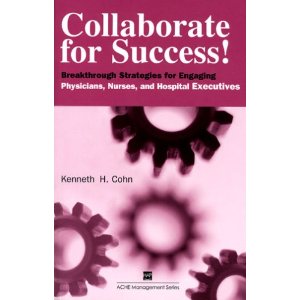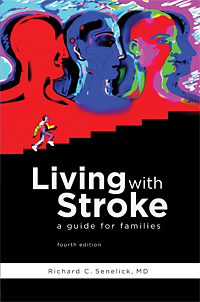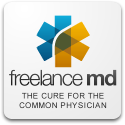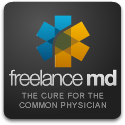Physician Writing: Emotional Responses To Breast Cancer
Ordinary Miracles: Learning from Breast Cancer Survivors.
Directing a Multidisciplinary Breast Cancer Clinic gave me the opportunity to interact every Thursday morning with newly diagnosed patients, their families and friends, and with my colleagues in Medical Oncology, Radiation Oncology, Nursing, Radiology, Pathology, Genetics, Plastic Surgery, and Psychiatry. I met and observed six new patients every week for years. I noticed that patients, while grateful for the purely technical and medical information, seemed quite interested in the other patients. Patients struggling with their fears of death and the uncertainty of an impending barrage of treatments want to determine how other newly diagnosed patients feel. I wanted to understand these uncertainties, emotions and feelings in order to better manage my patients and to help them cope with their disease. I asked eight hundred of my patients to write about their experiences. I encouraged them to remember the feelings when they were told there was a suspicious lesion in the breast, when they were given the diagnosis in the surgeon’s office, when they faced surgery, chemotherapy, targeted therapy, radiation and follow-up visits. About ten percent of the patients responded to my request, some with brief paragraphs, others with many pages.
A number of common themes emerged from the patients’ stories. There is an emotional value in knowledge gained from professional explanations. Knowledge enabled an understanding of the choices, helped overcome myths, guided decisions, provided hope and diminished fear. All the patients showed an innate wisdom and determination to survive. In taking control of their own treatment decisions and choices they helped unmask the feeling that the disruption to their lives would eventually be overcome, that ‘time would heal the issues.’ During the disrupting events of each of the treatment modalities they found the strength to immerse themselves in ‘normal activities’ which helped them avoid focusing every moment on the cancer. The support provided by family, friends, health care workers, cancer support networks, one’s boss and co-workers were very valuable. Faith in the health team and in ‘a higher power’ played a big role in emotional support although professional psychological help was sometimes necessary. The biggest fears were: loss of control, loss of dignity, pain, loss of a job, and progressive encroachment on personal freedom.
I learned important lessons that enhanced my own ability to manage patients and I was enchanted by stories of great courage, bravery, inner strength and tenacity. I thought that the stories would help many new breast cancer patients, and also their care givers and perhaps many other patients with life-threatening diseases. Organizing the stories into a book was time consuming and filled with joy and it took some time to come up with the title: ‘Ordinary Miracles: Learning from Breast Cancer Survivors.’ Miracles abound in the modern day management of breast cancer and many are related to the creativity of modern scientific discovery, leading to a twenty percent improvement in the overall cure rate of stage one disease over the past thirty years. But the miracle in my title refers to the triumph of the human spirit. Faced with despair and death, the human soul chooses life and hope. No matter how devastated the patient feels when first confronted with the diagnosis, she displays a miraculous and triumphant change within a few weeks while she goes though the necessary treatments. This is an ‘ordinary’ miracle because it is accomplished by almost everyone, old and young, highly educated and less educated, of all social, economic and ethnic classes, and therefore not ‘extra-ordinary.’
Serendipity accounts for the rapid publication of my book. The day after I completed the last page, while wondering how to get it published, I received an email advertisement about a workshop in Boston that offered to address this exact question. I brought the manuscript with me to the workshop, found an editor who liked the work and offered to take it with her to her company in Connecticut. Six weeks later I signed my first book contract. There followed a whirlwind few months of editing, finding a publicist and obtaining endorsements from prominent oncologists, a patient, a theologian, a psychiatrist and a psychotherapist. Soon after the first printing, and while working full-time in my academic position, I was exposed to a number of media interviews including major newspapers, magazines, television and radio. I found myself signing copies of the book at Borders, cancer survivor luncheons and in my office. The most rewarding part of all the frenetic activity associated with the writing and publication was to hear from patients and from nurses that newly diagnosed breast cancer patients felt quite comforted to recognize that they were not alone in their fears. Knowing that someone else had experienced the same feelings and emotions and had survived the treatments was extremely comforting. The learning experience for me and for my patients continues.
About: S. David Nathanson MD, surgical oncologist and Professor of Surgery at Wayne State University Medical School in Detroit is a breast surgeon at Henry Ford Health System in Michigan. He directs A Multidisciplinary Breast Diagnostic Center at West Bloomfield Hospital and the Multidisciplinary Breast Cancer Clinic at the Detroit Campus of Henry Ford Hospital and can be found at www.facebook.com/henryfordpinkyswear and www.youtube.com/user/HenryFordTV.





 Post a Comment
Post a Comment